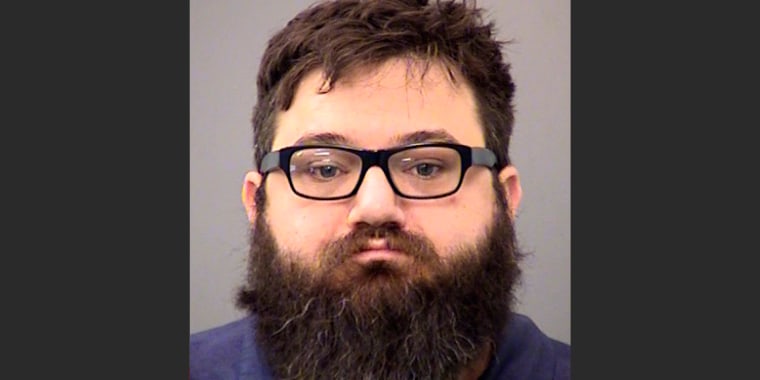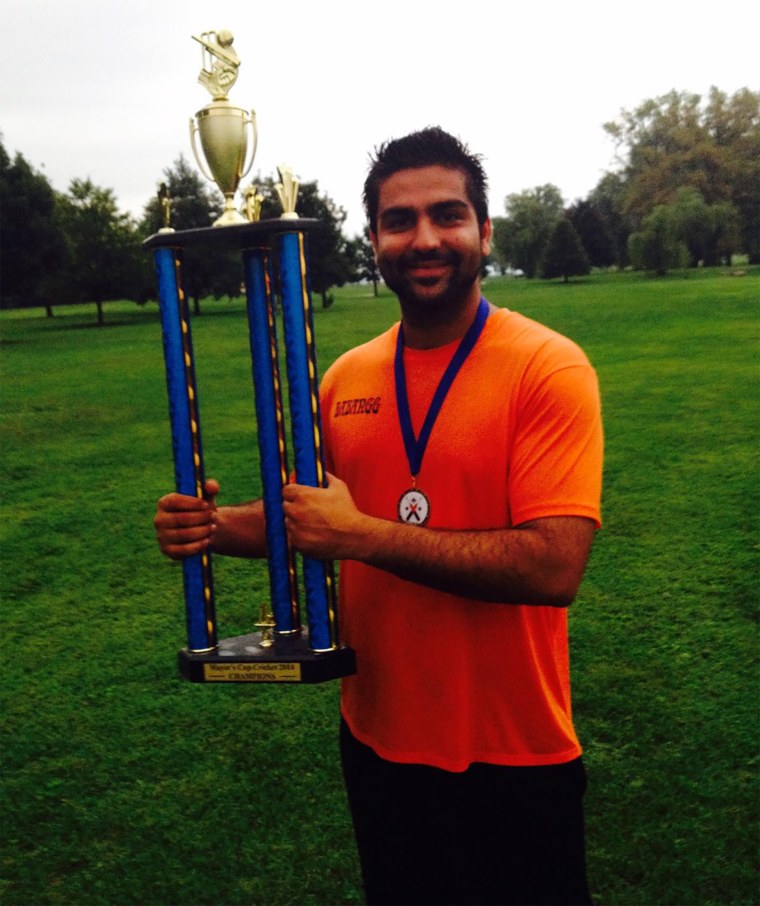The sister of an Indiana man who was fatally shot in the back after a road-rage incident has called for a hate crime investigation because the accused gunman was allegedly yelling “anti-Muslim slurs.”
But the prosecutor pressing charges against Dustin Passarelli for the death of 32-year-old Mustafa Ayoubi said he can’t do that because Indiana is one of just five states in the U.S. that doesn’t have a hate crime law.
“While the disturbing allegations underlying the charge in this case remain to be proven at trial, we are obviously unable to charge this alleged act as a hate crime,” Marion County Prosecutor Terry Curry said Friday.
“The death of Mr. Ayoubi has been charged as a murder, which we will vigorously prosecute to seek justice for Mr. Ayoubi, for his family and loved ones, and for all members of the Hoosier Muslim community,” Curry said.
The prosecutor voiced his displeasure with the Indiana lawmakers who have blocked attempts to pass such a hate-crimes law.
“We have said on many occasions, too many occasions in fact, that hate and crimes motivated by hate are real,” Curry said. “Some in the legislature wish to push the dialogue into the hypothetical, but those of us who listen to our neighbors understand that this is an unfortunate reality in our state.”
The chain of events that led to Ayoubi’s death on Feb. 16 in Indianapolis began around 7:30 p.m. when he and Passarelli were each driving south on I-465.
Passarelli told investigators another car “flew up” from behind him and he heard a bang, according to a probable cause affidavit.

Thinking the other driver threw something at his vehicle, Passarelli followed that vehicle off the exit and into an apartment complex.
"Mr.Passarelli stated he wanted to get the (information) of the driver in case there was damage," Indianapolis police Det. Brian Lambert wrote in the affidavit.
At that point Ayoubi got out of his car and the men exchanged words.
Ayoubi's friend Usman Ashraf told police Passarelli yelled, "Go back to your country," and used other ethnic and religious insults, according to the affidavit.
Passarelli, 33, told police that Ayoubi called him a "dirty Jew" and punched his driver's side window twice, causing a crack, according to the affidavit.
Ashraf said all Ayoubi yelled was "shut up."
"I don’t think that they knew each other so I don’t know how he would say he’s a Jew," Ashraf told the IndyStar.
The confrontation ended, witnesses in the affidavit said, when Passarelli blinded Ayoubi with a laser light and shot him through the window with a Glock 19 handgun. And when Ayoubi tried to flee, Passarelli fired again, they said.
Ayoubi, who was unarmed, was pronounced dead at the scene. The deputy coroner noted at least two gunshot wounds to Ayoubi's back.
In a statement, Ayoubi’s sister Zahra Ayoubi said, “We are crying tears of pain over the murder of my brother Mustafa.”
“The person who killed my brother was yelling anti-Muslim slurs as he shot my brother to death,” she said.
The developments came a day after the Indiana State Senate passed a hate crimes proposal that would allow a judge to generally consider bias when determining the severity of a sentence.
“Indiana is still one of only five states that does not have a biased crime law,” said Shenetha Shepherd, spokeswoman for one of the bill’s writers, state Sen. Grey Taylor, a Democrat.
But Taylor did not vote for his own bill Thursday because it was watered down with language removed that would have protected specific characteristics, including religion, gender identity, race and sexual orientation.
His Republican co-writer, state Sen. Ron Alting, also did not vote for the bill Thursday..


